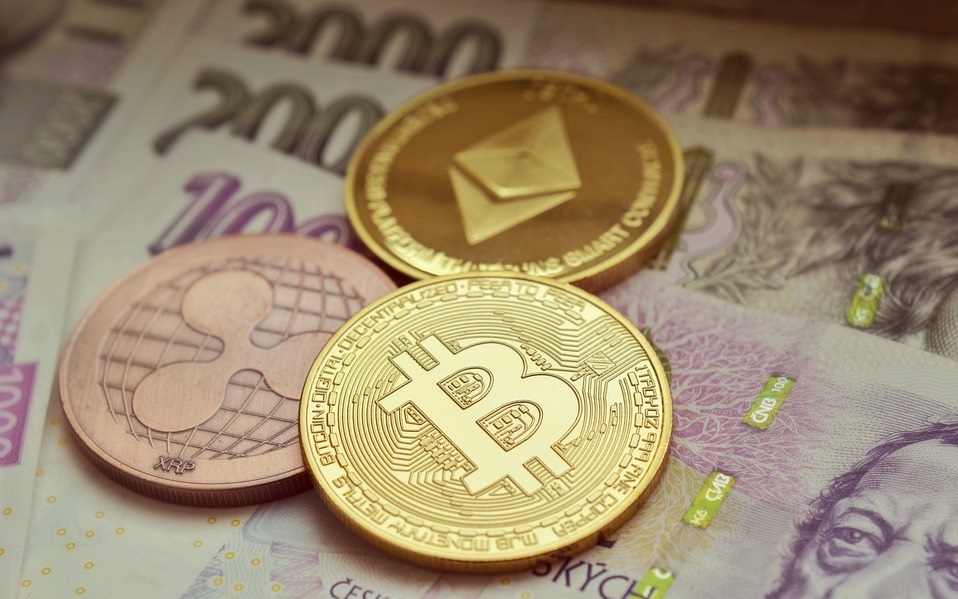
One of the enthusiasts’ most frequently asked questions is, “How do I secure my cryptocurrency?” And indeed, it’s a good question that requires further insights and explanations.
It’s true that blockchain, the technology underlying digital currency, is a highly secure system of recording data in a manner that makes it challenging to hack, modify, or cheat it. But, regardless of the advanced technology meant to safeguard crypto transactions, blockchain isn’t 100 percent invulnerable. The latest technological developments have, indeed, paved the path for many breakthroughs, but they also caused hackers to delve into more advanced methods to compromise systems and benefit from them financially. Simply put, once you buy Ethereum with bank transfer or credit card, it’s not enough to leave it in an exchange’s hands or hold it in an online wallet. Just as you’re careful about where to buy Ethereum, so should you be regarding the coins’ safety.
It’s your very responsibility as an investor to secure your crypto assets, and here’s how you can do it successfully:
Cold wallets are key
Basically, there are two types of electronic wallets: hot and cold. The former is an online wallet, meaning that it’s connected to the Internet. Although this is a go-to option for many investors, it’s not usually the most secure, especially when it’s about virtual currencies like Bitcoin or Ethereum. Surely, there’re also the exchanges, the platforms you buy your crypto from, but keeping your digital assets in there is not recommended either. Even reputable exchanges with strong safety precautions in place aren’t immune to thefts or hacks.
That being said, cold storage is the safest and most advisable way to keep your crypto out of hackers’ sight. Cold wallets are offline and typically involve physical hardware similar in size to a USB drive. That means the private key associated with your cryptocurrency is kept safe, and only you can use it to access your funds. That’s actually the very essence of cryptocurrency storage. You don’t keep actual coins in a wallet but merely the private keys linked to them, which are pieces of code. This code should never be forgotten or shared; otherwise, you risk becoming a victim of theft. Hardware storage has repeatedly proved effective, but there are also unfortunate cases where bad actors managed to decrypt one’s wallet and access their virtual coins.
Also, have you heard about the two investors misplacing their hard wallet’s private key? They were forced to hire a personal hacker to regain millions of dollars from their Bitcoin wallet. If this ever happens to not-so-millionaire investors, collaborating with an expensive private hacker wouldn’t be that achievable. So, ensure you never forget your private key or, even better, consider storing it in a deposit box or fireproof safe.
Trade on a recognized exchange
Exchanges are probably more exposed to cybercrime than anything else. But learn there’re reputable exchanges based on robust safety protocols that care about investors’ money. They’ve built their name in time and gained consumer trust by relying on advanced site encryption such as TLS/SSL and multi-factor authentication (MFA). Thus, before making any purchase, ensure you conduct deep research on the exchange you’re going to trade crypto on to avoid crypto theft. It’s true that such cyberattacks don’t happen very often, but when they do, they usually result in millions of dollars lost, so the effects are devastating. Ensure also the exchange chosen has any limitations on balance transfers and notifications or the option to suspend your account to mitigate harm.
Avoid public Wi-Fi
Handling cryptocurrency investments inevitably implies transactions on the Internet, so a safe Internet connection is no longer an option – it’s a necessity. Connecting to public Wi-Fi might be a go-to option, especially when you drink the morning coffee in your favorite café. But unfortunately, it can result in all-time financial loss. When using public Wi-Fi, your personal information, including name, address, online traffic, and Internet Protocol (IP) address, is exposed to outside intruders. Nonetheless, you can be one step ahead of these bad actors and shield your browsing activity and online data using a virtual private network (VPN). Not only does a VPN let you change your location and IP to anywhere on the globe, but it also provides an encrypted tunnel between the sites you explore and the device used.
Make a VPN part of your day-to-day Internet activities, not just cryptocurrency trading.
Be wary of phishing
Phishing, especially email phishing, is one of the most common scams. It involves someone sending you an email asking for information like the login password to your crypto account. The malicious actor behind this scam may also promise rewards in exchange for a deposit to get into your personal investments and steal your money. It’s very important to be informed enough about this type of attack so that you don’t fall for it. Learn that phishing scams nowadays are pretty advanced, particularly when done by experienced hackers. These people tend to conduct insightful research before compromising victims, so don’t be surprised if you ever see an email allegedly sent by a blockchain exchange’s executive or employee. It’s easier to convince people to click suspicious links if they pose as a legitimate entity, but you can alter their plans by entering the sent URL manually or contacting the exchange platform if you feel something doesn’t smell right.
Update your credentials regularly
In the present context, you may take it for granted that your credentials will be cracked sooner or later. Well, things aren’t really like that. The truth is, if you use strong, uniquely conceived passwords, the chances of being hacked are minimal. That’s why the best you can do to secure your crypto assets is to build complex, hard-to-guess passwords that have nothing to do with your interests or family. Just think of some random phrases, combinations of letters, numbers, and characters, and update your credentials regularly. Also, be sure to create a different password for each of your accounts (if you have several) – it might be daunting to manage dozens of passwords, but a password manager app will help, trust us.



